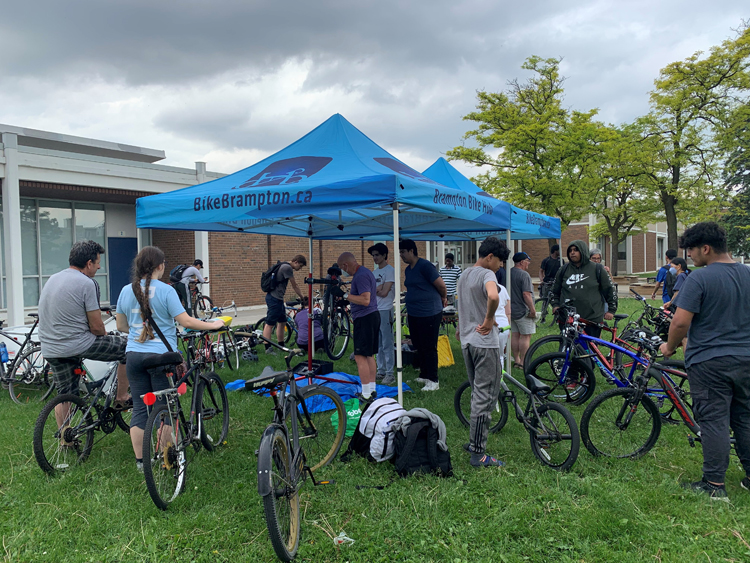Peel Region Publishes a Retrospective Analysis of its Community Cycling Program in Brampton, Caledon & Mississauga.
Like many communities in the Greater Toronto Area, Peel Region faces multiple challenges. Inflation is putting a squeeze on household finances, traffic volumes threaten to swamp available road space, health issues related to the pandemic and to sedentary lifestyles are threatening to overburden healthcare systems. And a rapidly changing climate is wreaking havoc on local and worldwide weather patterns, causing untold suffering and threatening to overwhelm disaster relief systems. Increasing bicycle use is one important way to positively impact all of these issues, especially if the bike ride replaces a car ride to shorter-distance destinations.
With most people in Peel not getting enough daily exercise, bicycle riding is an effective, low-impact form of physical activity that improves fitness and helps with weight loss. Using a bicycle for short-range trips instead of a car, helps people to be more physically active without having to schedule it or pay for it.
Bicycles represent a very efficient and low-cost form of transportation. Bicycles are six times faster than walking and are 90% less expensive to own and operate than a car. With proper knowledge, bicycles are simple to maintain in top working order. And, with proper care and suitable clothing, bicycles will last for many years and can be ridden all year long.
Environmentally, a bicycle produces no carbon emissions or polluting particulates. Bicycles take up less road space than a car and are less damaging to road pavement. The more bicycles replace car trips, the less congested roads become, the safer roads become, and the cheaper roads become to build and maintain.
So encouraging more people to ride bicycles is a good thing for everyone in the community, even those people who don’t ride. Since 2015, the Region of Peel’s Community Cycling Program has helped thousands of Brampton, Caledon and Mississauga residents become safer, more proficient cyclists both for transportation and recreation. The program offers a range of free services including, bicycle loans, bicycle repair training and bicycle riding mentorship. Participants in the program have saved money, improved their health, increased their confidence and skill and better connected with their communities.
Peel recently completed a retrospective analysis of the program’s results over the 5 years it has been operating since the first pilot project began in Brampton in 2015. The full report can be accessed here. The report concludes the Community Cycling Program has successfully increased access to cycling, increased cycling skills and knowledge, and made cycling in the Region a normative behaviour by creating a cycling community. Peel is now evaluating how the program fits into its integrated transportation plans for the future. Let’s hope it will come up with an approach that will expand the program and provide long-term stable funding.

